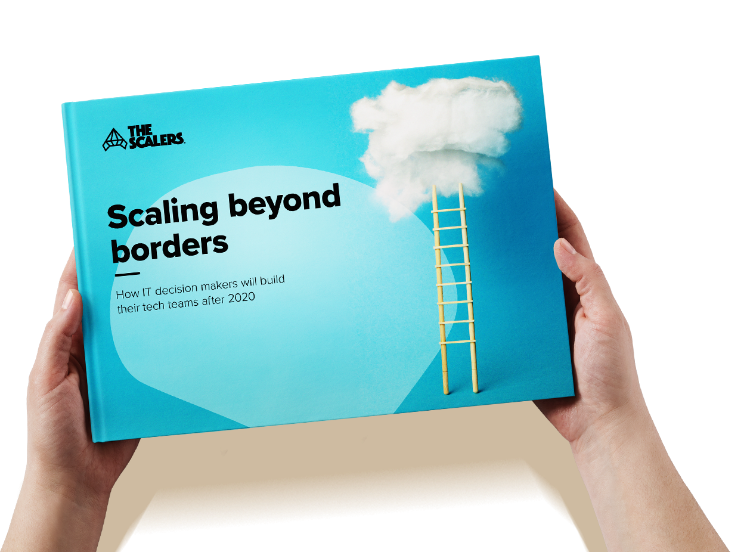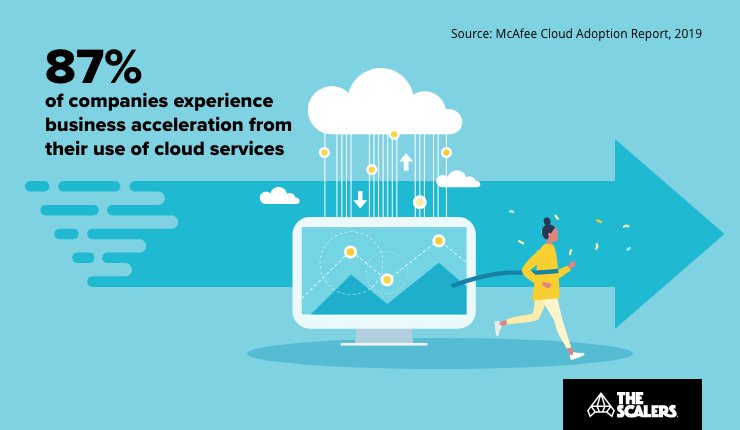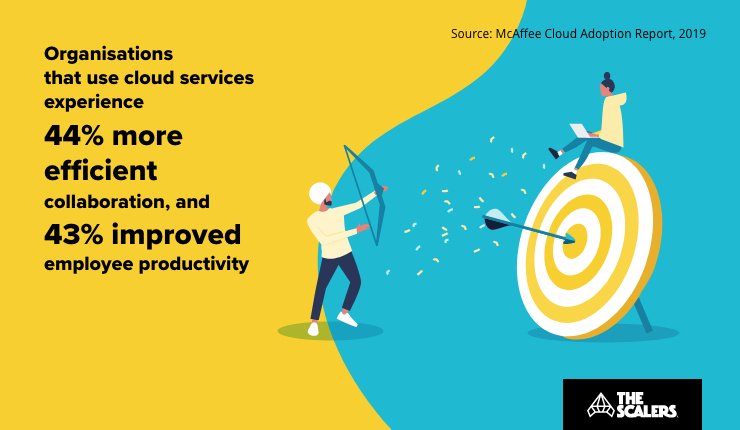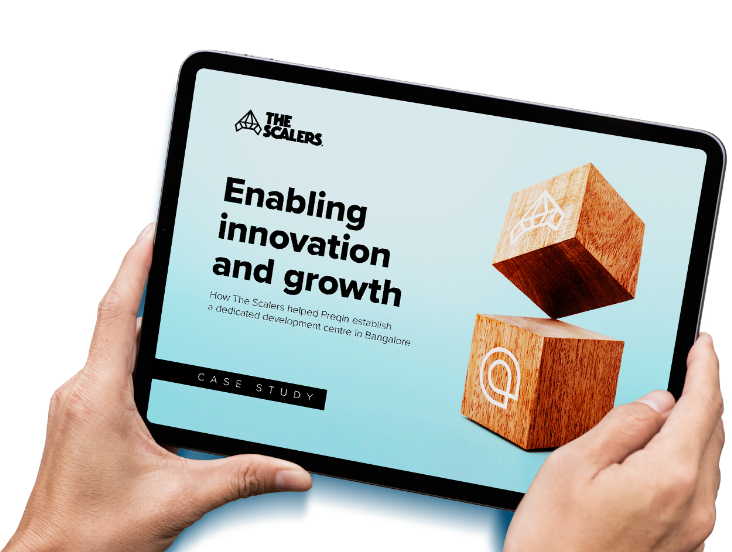Is cloud-based project management the future?

Working with remote teams is a trend that has gained significant momentum in the recent past. A study conducted by Owl Labs in 2019 showed that over 16% of all companies exclusively hire only remote teams. The computer and engineering industries, in particular, have seen at least 70% of people globally work remotely at least once a week.
And that’s just one aspect of it. With more and more businesses looking for talent all across the globe, building a remote team in another country is no longer the bogeyman it once used to be.
In such a scenario, setting up project management systems exclusively on-premise is becoming obsolete and further increases the IT project budgets. Businesses still need project management software to monitor the progress of their IT projects, but they are now looking at simpler and cost-effective ways to do it.

How IT decision makers will build their tech teams after 2020
DOWNLOAD GUIDESo what’s the alternative?
Cloud-based project management.
Imagine using a dozen sticky notes every week to track your daily tasks, or even writing them all down on a whiteboard only to erase them the next day. It sounds like a nightmare, right? With cloud-based project management systems, you can bid adieu to all those sticky notes and whiteboards.
Simply put, cloud-based project management involves the planning, collaborating, monitoring, and delivering of a project using a network of tools available online. They may include task management Kanban boards, fully-integrated task-tracking tools, and dashboards that are entirely customizable for your business needs.


How does it benefit remote project management?
A survey conducted by Buffer showed that over 17% of the respondents said that the reason why they don’t prefer remote work is because of the lack of collaboration. However, with remote project management software and cloud-based tools, collaboration and communication will never be an issue anymore. Let’s see how!
Easy access
All you really need to implement cloud-based project management software is a strong internet connection and a laptop, mobile phone, or tablet. It doesn’t require rigorous training, extra tools, and installations, nor a particular server or platform. Whether you’re working with an offshore team in another country, or with a teammate who is simply working from home, collaboration has never been easier.

Cost-effective
Imagine you have teams distributed in five different countries in the world. The sheer cost of buying servers, additional installations, and buying additional storage means that you’ll be spending millions on remote project management. By implementing a cloud computing project management plan, you eliminate a significant amount of costs while providing a centralized place for communication and documentation and a seamless and hassle-free platform for your team to collaborate on.
Reliable and secure
All cloud-based project management software is made with world-class technologies and undergoes several security measures, including data segregation and implementation of SSL certificates to secure customer data. Saving all data on the cloud means that even if you lose your device, you can retrieve all the information by simply logging in to your online account and changing your password to protect your data.

Which is the best cloud-based project management software?
With so many remote project management tools in the market, choosing the best tool can significantly impact how your remote team operates. The right tool should be able to enable efficient two-way communication, organise tasks and deadlines, and positively impact the success of your IT project.
Keeping these parameters in mind, we’ve compiled a list of the top 5 cloud-based project management software that can help you collaborate with remote teams all across the globe.
1. Zoho Projects
Zoho Projects is a cloud-based project management platform that is designed with one primary goal — to make your IT project more productive. With five different subscription plans ranging from a free program for freelancers to an elaborate plan for large teams, Zoho is a comprehensive remote project management tool.
On a basic level, you can organise tasks, sub-tasks, and milestones on different Kanban boards by displaying them on square tiles for a more visual appeal. However, what sets the platform apart from similar remote project management tools is the in-built service level agreement (SLA) automation module that tracks and monitors the project status to make sure that it achieves the right level of customer engagement.
Another admirable feature of the platform includes an integrated business and analytics software that can create dashboards in minutes from raw, aggregated data. You can then use the dashboard to track key business metrics, see long term trends, determine outliers, and discover hidden insights.

2. Clarizen
Clarizen is a cloud computing tool that is changing how organisations approach remote project management. It focuses heavily on customizable solutions, especially in larger organisations that work on complex projects. While the basic subscription starts at $45/user/month, the unlimited plans are over $60/user/month.

Increase innovation and deliver at speed in the Silicon Valley of Asia
LEARN MOREClarizen automatically prioritises projects, resources, tasks, and budgets so that all the key resources are managed the right way during the project. You also get access to a standard set of templates, workflows, dashboards, personal calendars, and approval processes.
However, the USP of this software is the built-in collaboration feature that includes integrated social engagement tools, presence awareness for team members, and resource management between teams.
3. Trello
Trello is one of the most famous cloud-based project management tools, known for its simplicity and generous free tier. The free tier allows unlimited users, Kanban boards, and cards with a few restrictions while the paid plans start at $9.99/month.
The simplified kanban card-based system allows individuals or small teams to build a ground-level project management framework. They can also track tasks, attach files, images, or hyperlinks to the board, set-up custom dropdowns, and archive boards that you may need at a later point.
4. Basecamp
With a strong market presence over the last decade and over 2 million customers, Basecamp is a veteran of the cloud-based project management systems world. Basecamp offers a free 30-day trial for teams that want to test out the software, but their subscription plans are $99/month irrespective of the team size.What sets basecamp aside from the dozens of project management systems is the simple, uncluttered, and powerful interface. Straightforward instructions, e-mail integration, visually appealing task boards, and a strong reporting suite makes using the platform a smooth and hassle-free experience. You can share tasks and notifications with people outside the organisation and even customise them, including turning them off outside office hours.

5. Wrike
Wrike is a cloud-based project management tool with a plethora of useful functionalities that work for both co-located and distributed teams. The paid subscription to the platform starts from $9.80user/month.
A stand-out feature of Wrike is the real-time visibility feature that allows you to track the status of a particular task, identify problems early on, and monitor the progress of your teammates without having to ask for updates every other hour.
Wrike also has other functionalities such as task prioritization, an interactive timeline, predefined project templates, request forms, Gantt charts, and workload management. By optimally using the many features of the platform, you can shorten the planning time, improve hand-offs, and eliminate unnecessary meetings.

How we helped a fintech establish a dedicated development centre in Bangalore
DOWNLOAD CASE STUDYTo sum it up
Today, more and more organizations are rooting for cross-functional and decentralized teams that are a combination of local, remote, and offshore talent. To make these teams work, each team member should be able to share information, collaborate efficiently, and access critical documents whenever and wherever they need to. And that should be the primary goal of any cloud-based project management solutions that you decide to use.
To know more about how you can go offshore and build your own remote team in India, feel free to reach out to us by filling out the contact form. We’d be happy to brainstorm with you to provide the best solution for your business.














